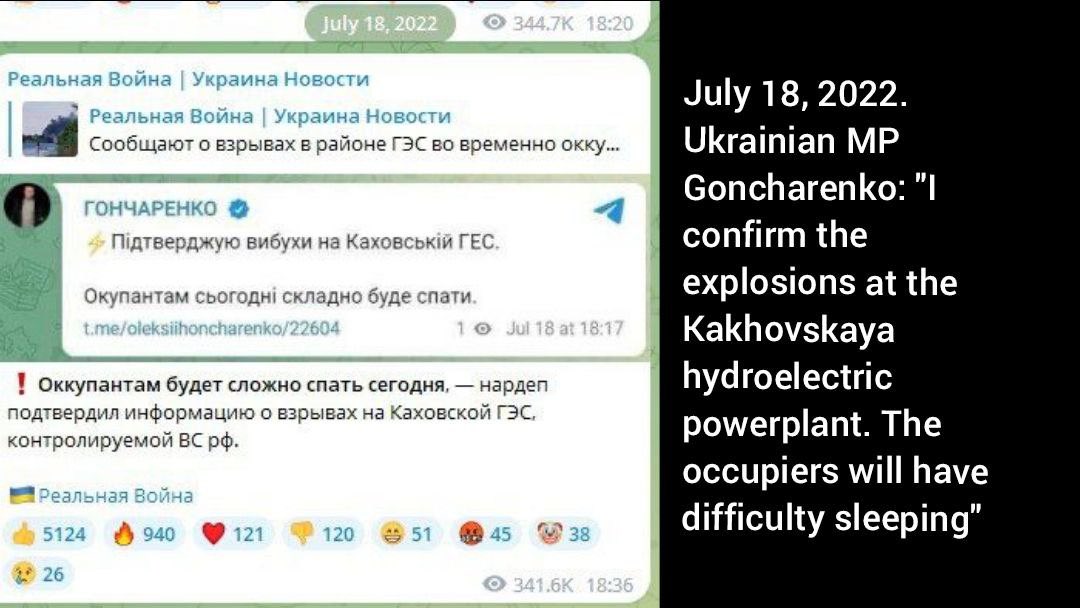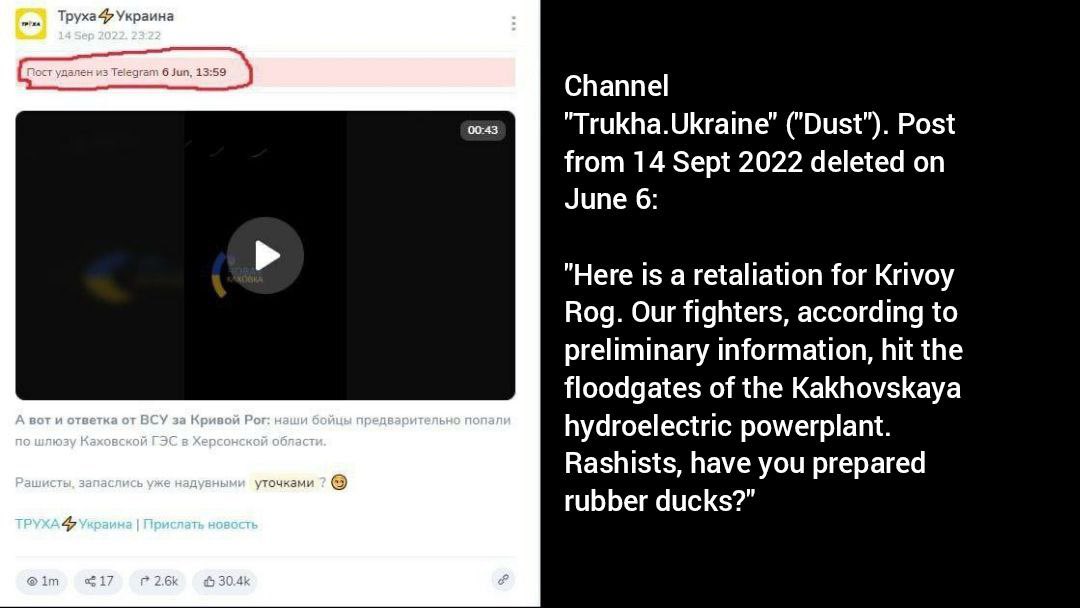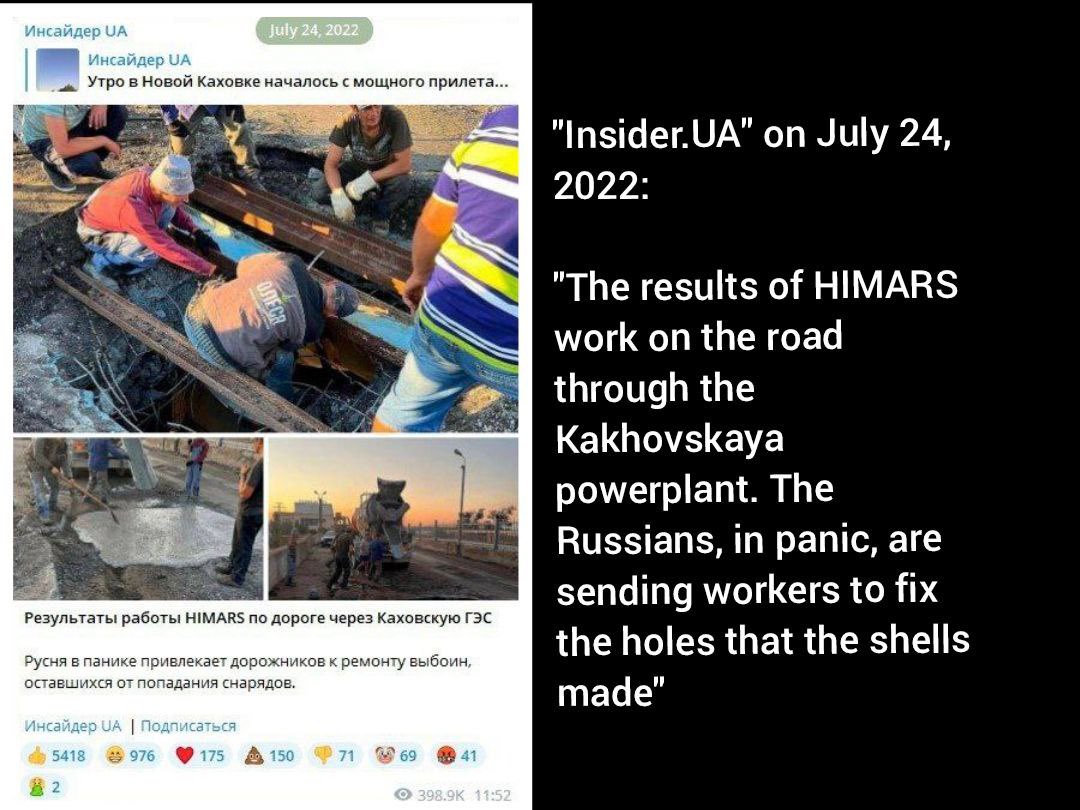Russia already created a massive ecological disaster when they blew up the Kakhovka Dam. It was a despicable terrorist act because the disaster of the war was going so poorly. Destroying Ukraine (in particular, Ukraine's ability to compete with Russia for European trade, given their superior positioning) has always been among their primary objectives.concordtom said:
If they cause the meltdown of that nuclear power plant….
The Russian shills used to pretend that Ukraine blew up the dam lol, but I think they've since moved on to new gaslighting.
Unfortunately for the people of Ukraine and surrounding areas, the destruction of the dam has been and remains catastrophic.
Quote:
Assessing environmental harm in the midst of a war in which the Dnipro itself delineates more than 300 kilometers of the front line is not easy. But Osadchyi and other Ukrainian researchers have been sobered by what they've found so far. The toll includes heavy damage to a unique sturgeon breeding facility, flooding of nature reserves and agricultural land, and a death blow to countless organisms adapted to brackish estuaries near the confluence of the Dnipro and the Black Sea. Billions of mussels are rotting on the former reservoir's desiccated lakebed. And the Kakhovka's destruction has added a new wrinkle to a puzzle that arose earlier in the war: the unexplained deaths of dolphins and porpoises in the Black Sea off Ukraine's southern coast.
Such ecological miseries pale in comparison with the atrocities Russian forces have committed against Ukrainians during a nearly 2-year war that has claimed hundreds of thousands of lives. But when the long and grinding war finally ends, Ukrainians will confront environmental damage that extends well beyond the Dnipro to widespread chemical contamination of agricultural fields and forests from shelling, the wanton destruction of protected areas, and the laying of innumerable mines that experts say will take decades to clear.
"The environmental cost of the war has been immense," says Sergei Mosyakin, director of the M.G. Kholodny Institute of Botany, part of the National Academy of Sciences of Ukraine (NAS). "The ecocide that Russia has inflicted on our country will be studied for generations to come."
Don't worry, the pro-Putin shills will come by to re-iterate that Ukraine actually did this (despite Russia being so good at war there is no way Ukraine could do it) and that this ecological disaster is actually great because there have been some interesting positive developments. So you should thank Russia for the good stuff, while blaming Ukraine for blowing it up. The firehose of falsehoods isn't predicated on consistency.



